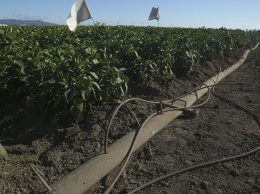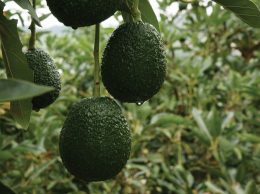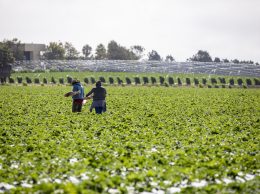Limoneira shareholders approve request to increase number of shares
Limoneira shareholders approved a board of directors request to increase its number of authorized shares March 28, but the company has no plans to issue additional stock this year, said CEO Harold Edwards.
More than 100 shareholders gathered at the Ventura County Agriculture Museum in Santa Paula for the annual meeting to confirm three new directors, ratify the selection of an independent auditor and approve other proposals put forward by the board. In its proxy statement published Feb. 20, the board recommended the company double its shares of common stock from 19.9 million to 39 million, stating that it would not have an adequate number of shares to raise the capital necessary to support its strategies under its current structure.
The company had an additional 100,000 shares of preferred stock, with more than 14.2 million shares of common stock outstanding and around 2.5 million shares reserved for future issuances as of Jan. 31.
Edwards led his presentation to shareholders with a summary of the company’s investments and acquisitions since 2010, totaling $105 million and $36 million respectively. Of the acquisitions, around $19 million were purchased in cash, and another $17 million in stock, he said.
Acreage has also expanded around 55 percent since 2010, mostly in lemons. This year, 2,000 acres are expected to begin to bear fruit, putting the upgraded capacity of its $30 million new packinghouse to use.
Avocado consumption per capita remains high, Edwards said, netting the company sales of 95 cents per pound this year and tentative expectations of around 9 million pounds at $1 per pound or more next year, depending on the reliability of output from Mexico.
Unexpectedly strong rainfall early in the year was a blessing for the company but pushed it to harvest more than 50 percent of the fruit currently on the trees, as opposed to the normal 30-35 percent, which will lead to decreases in production around June or July.
That’s where some of the acquisitions come into play, said Senior Vice President Alex Teague, such as production at its recently acquired Chilean operation, Pan de Azucar. As well as lending a more accurate understanding of global markets and seasonal shifts, sales on lemons, oranges and specialty citrus from its holdings in Chile, Argentina and South America are expected to double this year, Teague said.
Accessing water has also presented challenges over the course of the drought, while simultaneously driving up the value of the company’s water rights, Edwards said.
“Every single one of our individual land assets has a different dynamic as it relates to water,” he said, adding “fundamentally, there are systemic over-allocations of water for environmental reasons or for urban development uses that are constantly challenging our access to this water agriculturally.”
A reliable supply of labor was also a concern for shareholders. Edwards said it has been a struggle for labor contractors in the region grappling with naturalization issues but Limoneira’s workforce has been steady.
“It’s not a new issue. We’ve been dealing with this for really the last decade, and with current rhetoric at the national level now, there’s more anxiety out there but, in terms of our ability to access labor, so far so good.”
After more than 10 years of planning and permitting, rock remediation is underway for the Harvest at Limoneira housing project, said Mike Penrod, founding partner of the Parkstone Group. With grading and improvements scheduled through October, lot sales to builders are expected to get “money coming the other direction” in December, with model home openings and move-ins slated for late 2018.
• Contact Marissa Nall at [email protected].











